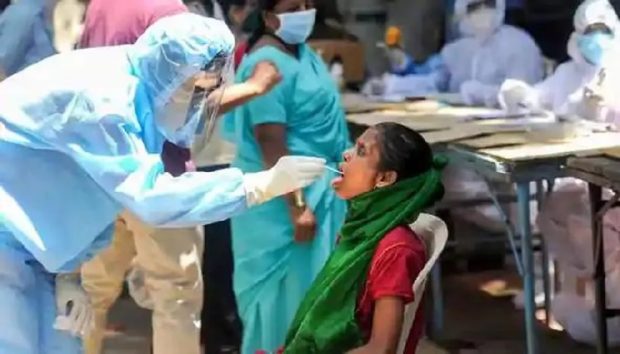
Abnormalities in immune system’s T cells linked to severe COVID-19: Study
PTI, Nov 22, 2020, 11:33 AM IST

Tokyo: Researchers have found that abnormalities in the immune system’s T cells are linked to pneumonia seen in COVID-19 patients, findings which may lead to new ways of avoiding severe lung infection caused by the novel coronavirus.
According to the study, published in the journal Frontiers in Immunology, critically ill COVID-19 patients experience an immune system overreaction, whereas the number of T cells – the “command centres” for immune cells – is significantly reduced in the blood.
The scientists, including those from Kumamoto University in Japan, explained that T cells regulate the activity of the immune system by recognising specific viruses, and also play important roles in virus elimination and the acquisition of immunity.
In the current study, they assessed T cells to determine the causes of severe pneumonia in COVID-19.
The researchers said CD4+ T cells (helper T cells) work to eliminate viruses from the body by promoting the maturation and activation of cytotoxic T cells, which attack virus-infected cells, and B cells, which produce antibodies.
On the other hand, they said when some CD4+ T cells become highly activated, they become regulatory T cells which then act as brakes to inhibit T cell responses.
The scientists analysed genetic data from bronchoalveolar lavage fluids from the lungs of patients with COVID-19 from Wuhan, China to characterise the activity and genetic characteristics of the CD4+ T cells present.
They found that while T cells were markedly activated in the lungs of patients with severe pneumonia, the T cell braking function stopped working.
While T-cell activities are usually balanced between accelerating and braking, the researchers said one of the most important brakes was not functioning in severe COVID-19 which may have led to pneumonia.
“This study has clarified the association between severe pneumonia and T cell abnormalities. We expect that these findings will lead to a better understanding of the mechanisms of severe pneumonia in patients with COVID-19,” said study co-author Masahiro Ono from Kumamoto University.
The scientists believe a more detailed understanding of the pathogenesis based on this research may contribute to the development of drugs to prevent the development of severe COVID-19.
Udayavani is now on Telegram. Click here to join our channel and stay updated with the latest news.
Top News

Related Articles More
Genetic vulnerability for low insulin, unhealthy fat major causes for diabetes in South Asians: Study

Study links overthinking to ‘constant communication’ between brain’s fear-centre, social behaviour

Mangaluru: Campco opposes WHO’s claim of arecanut being carcinogenic

10 month baby gets new heart, new life

World COPD Day: Know your lung function
MUST WATCH
Latest Additions

Seven West Indies players to train at Chennai Super Kings Academy from December 1

Equity markets rise in early trade amid buying in HDFC Bank, SBI

Money laundering case: ED team undertaking searches attacked in Delhi
B’luru: Four policemen get 7 years imprisonment in custodial death case

Where are we taking country for political dividends: Sibal after ‘Shiva temple in dargah claim’
Thanks for visiting Udayavani
You seem to have an Ad Blocker on.
To continue reading, please turn it off or whitelist Udayavani.





















